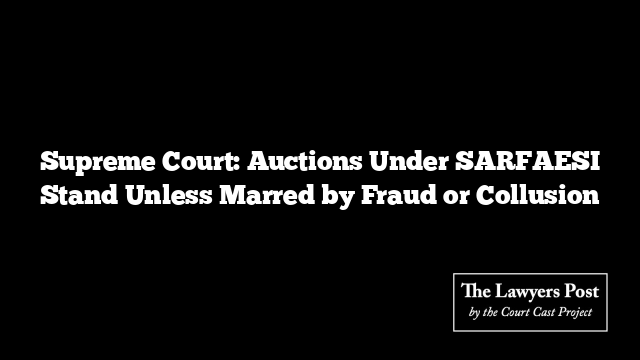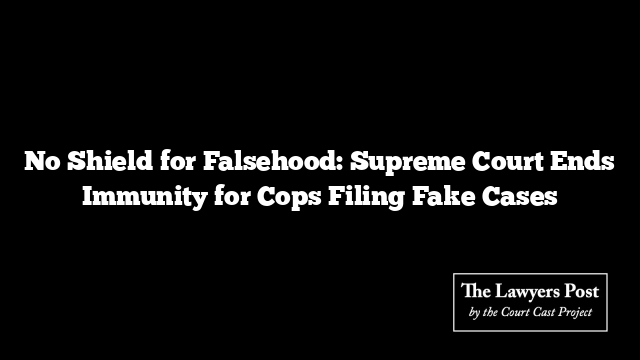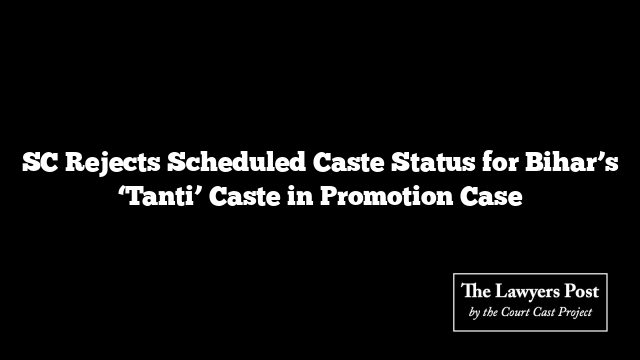In a significant interpretation of the SARFAESI Act, the Supreme Court underscored that confirmed property sales via auction cannot be undone on trivial procedural lapses, except in instances of fraud, collusion, grossly inadequate pricing, or similar grave irregularities.
A bench comprising Justice JB Pardiwala and Justice Manoj Misra emphasized the sanctity of confirmed auctions, asserting that challenges should only arise when issues strike at the core integrity of the sale. Procedural deviations, unless they cause substantial harm or undermine the authority of the process, are insufficient grounds for annulment.
The Court noted:
“Once a sale by auction or other public procurement methods is confirmed, it should not be lightly interfered with unless it is vitiated by fraud, collusion, or fundamental flaws such as inadequate pricing or underbidding. Mere irregularities or minor deviations do not erode the validity of such proceedings.”
Advising restraint, the Court cautioned against reopening completed auctions unless challenges were timely or arose from significant irregularities causing tangible harm. Referring to the precedent in V.S. Palanivel v. P. Sriram, the Court reiterated that auctions must not be disrupted for superficial reasons, given the potential ripple effects on related transactions.
In this particular case, a borrower objected to the auction on the grounds of insufficient notice. However, the Court dismissed the challenge, observing that no substantial prejudice was proven, nor was there evidence that the procedural gap hindered the borrower’s ability to assert their rights.
The verdict reaffirms the judicial reluctance to unsettle concluded auctions under the SARFAESI Act, ensuring stability in enforcement processes while safeguarding against fraudulent practices.





